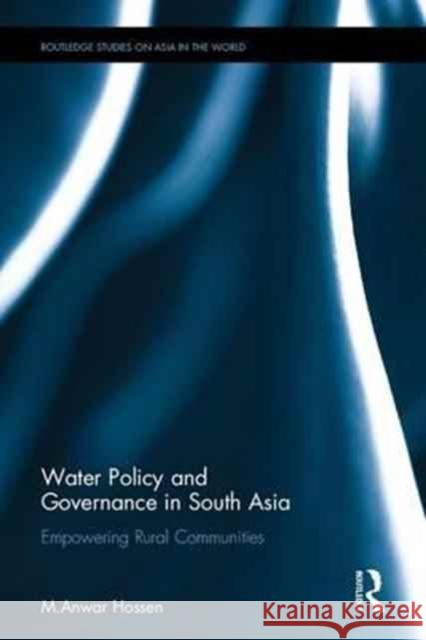Water Policy and Governance in South Asia: Empowering Rural Communities » książka
Water Policy and Governance in South Asia: Empowering Rural Communities
ISBN-13: 9781138690660 / Angielski / Twarda / 2017 / 222 str.
Water Policy and Governance in South Asia: Empowering Rural Communities
ISBN-13: 9781138690660 / Angielski / Twarda / 2017 / 222 str.
(netto: 676,35 VAT: 5%)
Najniższa cena z 30 dni: 654,86
ok. 22 dni roboczych.
Darmowa dostawa!
Dr. Hossen carried out an exceptional program of research in Bangladesh which focused on water governance in relation to human rights, international water law, and environmental sustainability. His major argument is that eco-agricultural system encounters major disruptions due to a number of factors including regional hydropolitics and neoliberal and highly centralized approaches to water resource management that follow the principles of "ecocracy." In this context, Dr. Hossen explores three major questions: (i) How can local ecological knowledge be incorporated into national water policy? (ii) What strategies and reforms are required at the international watershed governance level? and (iii) How can human rights principles, including the principle of water as a human right, be used to formulate more effective water policy and governance principles? To answer these questions, Dr. Hossen explores the effects of regional hydropolitics on water management, focusing on three large engineering projects, the Farakka Barrage built by India on the Ganges River, and the Ganges-Kobodak (GK) and Gorai River Restoration (GRR) Projects in Bangladesh. This analysis is based on his research into local knowledge and farming practices during a year of fieldwork in 2011-12, focus group discussions, in-depth case studies of four farming households and a survey in which 259 households participated. In addition to this primary data, the book looks at extensive secondary documents from the government of Bangladesh pertaining to water management, agricultural modernization and institutional structures. The arguments herein are applicable particularly to the Ganges-Brahmaputra Basin countries in South Asia but also to the river basins of other parts of the world.











